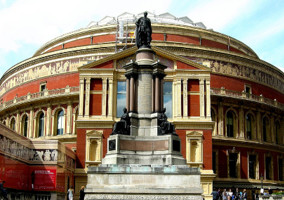Members of the House of Lords have said that longstanding governance issues at the Royal Albert Hall are harming its reputation and damaging the charity sector as a whole.
A private bill, deposited by the charity itself in November 2022, aims to amend some provisions of the Royal Albert Hall Act 1966 in relation to the annual seat rate payable by the members of the corporation.
During the second reading of the Royal Albert Hall bill, peers including former Charity Commission chair Baroness Stowell, said that it failed to address a “fundamental flaw” in the charity’s governance model nor any of the issues that have been of concern to the Charity Commission.
Stowell said that “it takes some audacity for the trustees of the Royal Albert Hall to submit a bill requesting more decision-making powers without addressing their unacceptable conflicts of interest policy”.
Civil Society has approached the charity for comment.
Some tickets sold for six-figure sums
The Royal Albert Hall has a unique “hybrid model” whereby more than 300 seat-holders, who are members of the corporation, hold more than a fifth of the venue’s 5,272 seats.
Most of the charity’s 23 trustees are seat-holders themselves and can decide which of the more than 1,000 withheld tickets should be reserved for seat-holders and which ones should be sold to the public.
Under the model, the seat-holders pay an annual levy, known as “seat rate”, and must forgo their tickets for about 100 days per year of performances so that the venue can sell them commercially to non-seat-holders, which are known as “exclusions” or “exclusivities”.
A few years ago, the hall set up a ticket return scheme, which enables the trustees to sell their tickets for face value, less 10%.
Lord Hodgson said during the debate that the reality is that tickets for popular events “can be sold for many times their face value” through third-party websites.
He gave the example of tickets for the upcoming Ed Sheeran concert being sold on Viagogo for “£5,899 by seat-holders who have paid £200 face value”.
“This is an extreme example, but a £100 ticket for the last night of the Proms was selling for £1,218, so this has clearly become a very profitable enterprise.
“The rumour was [...] that before the pandemic, seats were earning between £10,000 and £20,000 a year and were selling for £150,000. That was the rumour.
“Today, we have had a rush and the market in seats has been very good. I have here a flyer from Harrods Estates offering five seats in the second tier at the Royal Albert Hall for £1.5m – £300,000 each.”
‘Conflict of interest’
The Charity Commission previously expressed concern about the majority of the charity’s trustees being seat-holders and has been trying for several years to persuade the Royal Albert Hall to alter its constitution, without success.
Speaking at the debate, Viscount Chandos said that the bill as currently drafted is “disappointing in not providing for the governance changes that the Charity Commission and so many independent parties desire”.
“The conflict of interest and the trustees’ reluctance to address the resulting governance issues, such as by requiring a majority of their council to comprise independent trustees who do not own seats, not only harm the reputation of the Royal Albert Hall but damage the charitable sector as a whole, providing an uncomfortable example of private benefit being embedded in the position of seat-holding trustees.”
Stowell: ‘Completely unacceptable’ situation
Baroness Stowell said that she does not oppose the bill, but “it takes some audacity for the trustees of the Royal Albert Hall to submit a bill requesting more decision-making powers without addressing their unacceptable conflicts of interest policy”.
“To be clear, as the noble viscount said, the fundamental problem with the Royal Albert Hall’s governance regime is that, contrary to standard charity law, its trustees can benefit privately from the decisions that they make about how the hall is run.
“Noble lords familiar with charity law will spot immediately that this flies in the face of standard legal practice, which prevents private benefit for trustees. While the Royal Albert Hall’s set-up is perfectly legal, it is nonetheless unique.
“To be fair, a combination of previous acts of parliament and the hall’s historic constitution does not render the situation illegal.
“But in today’s modern world – where public trust in institutions is low and expectations of accountability high; boxes and seats at the Royal Albert Hall are bought and sold for hundreds of thousands, if not millions, of pounds; and trustees of a charity can sell their tickets for concerts at prices at least 10 times their face value – the situation at the Royal Albert Hall seems, to me at least, to be completely unacceptable.”
Related articles











